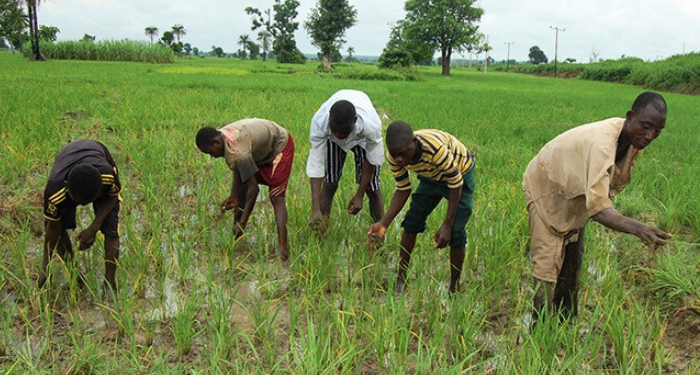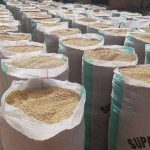The average production rate of paddy rice, maize, and soybean in Nigeria is set to decline by a combined average of 13% in 2024, largely due to soaring fertilizer costs and adverse climate conditions, according to the AFEX 2024 Wet Season report.
Maize production is projected to drop by 5.6%, totaling an estimated output of 11 million metric tons. The report attributes this decline to several factors, including a reduction in cultivated land, limited fertilizer usage, and unfavorable weather. Notably, the area cultivated for maize has shrunk by over 3% as rising production costs have led farmers to reduce their farm sizes.
The price of maize has skyrocketed by nearly 90%, rising from N480,000 per metric ton to about N910,000, which has in turn doubled chicken feed prices over the past year. The report emphasizes that maize is critical for food security in sub-Saharan Africa, especially in Nigeria, where it serves as a vital food source and cash crop for smallholder farmers.
“Climate change has further worsened the situation, with prolonged dry spells in states like Taraba and flooding in states such as Kaduna significantly hindering maize production and availability across these regions,” the report states. Additionally, the reduced application of fertilizers, driven by their high costs, has exacerbated the problem.
For paddy rice, consumption in Nigeria has surged by 25% over the past decade, while production struggles to keep up. The report notes that the decline in rice production is mainly due to high fertilizer costs, which have forced many farmers to switch to alternative crops like sesame and sorghum that require less fertilizer and are cheaper to cultivate. Prices for rice have jumped 123% in just one year, with local 50kg bags increasing from N70,000 to N105,000 and imported rice now averaging N130,000.
In 2022, rice production was around 8.5 million metric tons, but it is expected to decline by 0.4% to 8.1 million metric tons in 2024. Rice ranks as the second-largest cereal crop in Nigeria and plays a crucial role in the nation’s food security, with Nigeria being the fourth-largest rice importer globally.
Similarly, soybean production is projected to decline by 4.8%. Known as the “king of beans,” soybeans are vital for Nigeria’s consumable oil market and the global food supply. However, a shortage of Single Super Phosphate (SSP) fertilizer, essential for soybean cultivation due to its low nitrogen requirement, is limiting production. The rising costs of SSP have led many farmers to use less suitable fertilizers, negatively impacting yields.
The AFEX report underscores the urgent need for improved agricultural policies and investment in fertilizer accessibility to boost staple crop production and ensure food security across Nigeria and the broader African region.










